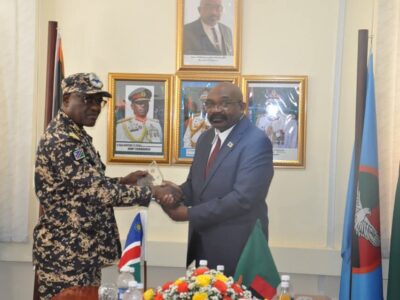ActionAid Zambia (AAZ) has raised concern on the recent surge in fuel prices sanctioned by the Energy Regulation Board (ERB) on April, 30, 2024.
Petrol prices have risen to K35.56 per litre from K31,12, reflecting a 14.27 percent increase, while diesel prices rose to K29.60 per litre from K28.78.
Kerosene prices climbed from K20.44 to K28.39 per litre, reflecting a significant 38.89 percent increase, noted, Jovina Nawenzake, ActionAid Zambia Interim Country Director.
Nawenzake said the escalation in fuel costs compounded the already heavy burden of living expenses, disproportionately impacting low-income households nationwide.
“We note that during the 2021 general election campaigns, the government made explicit commitment to address the factors contributing to soaring fuel expenses,” she stated.
Nawenzake stated that even after elections, specific focus on eliminating fuel intermediaries was identified as the cause of the high pump price.
She recalled that previously, the ERB announced the launch of a trial project for ethanol-blended fuel production, a promising stride towards mitigating fuel costs.
“Despite these pledges and commitments made by the government, fuel prices have continued rising monthly, contrary to the hopes of citizens for relief,” Nawenzake said.
She stated that as an organization committed to poverty eradication, ActionAid was deeply troubled and concerned by the ramifications of the escalating costs, which exacerbate the economic hardships faced by vulnerable communities.
Nawenzake asked government to tell the nation the progress made on implementing ethanol-blended fuel production and its impact on fuel affordability.
“What is the effectiveness of eliminating intermediaries in the fuel supply chain and how it has contributed to reducing fuel costs,” she asked.
Nawenzake said government should also explain the status of plans to import cheaper fuel from countries like Angola and advancements in securing alternative affordable fuel sources.
She also requested government to tell the nation on the long-term strategies to ensure sustainable and affordable fuel prices for all citizens.
“Finally, ActionAid urges the government to re-consider its approach towards fuel price reviews. We are advocating for a transition from monthly to periodic assessments,” Nawenzake stated.
She advised government to take immediate actions to alleviate the burden of fuel costs on citizens and this should be prioritised alongside the pursuit for long-term, sustainable solutions.
Nawenzake emphasised that the government should demonstrate its commitment to the well-being and economic stability of all Zambians.
“We therefore recommend the implementing of targeted subsidies or price controls on essential fuels to cushion the impact on low-income households,” she said.
Nawenzake added that investing in renewable energy infrastructure and promoting energy efficiency measures can help reduce dependency on fossil fuels and mitigate the vulnerability to price fluctuations.
She called for collaborative efforts with stakeholders, including civil society organizations and the private sector.
“This should be prioritised to develop comprehensive, sustainable solutions that address the root causes of fuel price volatility and ensure equitable access to affordable energy for all citizens,” Nawenzake stated.
WARNING! All rights reserved. This material, and other digital content on this website, may not be reproduced, published, broadcast, rewritten or redistributed in whole or in part without prior express permission from ZAMBIA MONITOR.












Comments